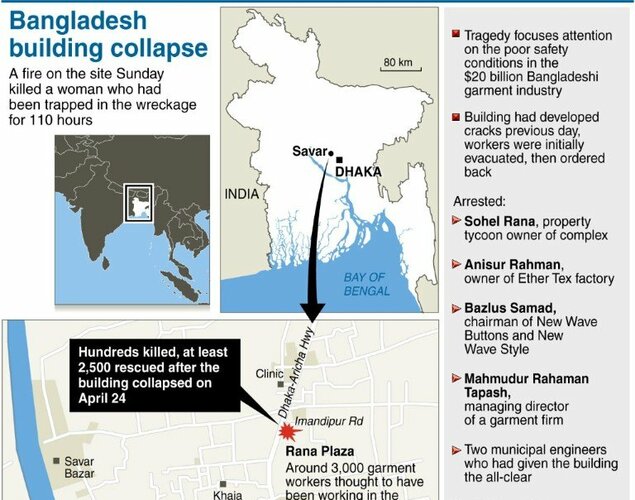
Workers hold a banner that reads “If you want to have a future, resist and fight at the present time” during a May Day workers demonstration in Porto, Portugal Wednesday May 1, 2013. In Portugal, with unemployment at 17.5 percent in March, the government is seeking to agree new austerity measures after its Constitutional Court rejected as discriminatory cuts to civil servant salaries and pensions decided in response to demands by EU-IMF lenders. (AP Photo/Paulo Duarte) ( Paulo Duarte )
ISTANBUL — Workers around the world united in anger during May Day rallies Wednesday — from fury in Europe over austerity measures that have cut wages, reduced benefits and eliminated many jobs altogether, to rage in Asia over relentlessly low pay, the rising cost of living and hideous working conditions that have left hundreds dead in recent months.
In protests, strikes and other demonstrations held in cities across the planet, activists lashed out at political and business leaders they allege have ignored workers’ voices or enriched themselves at the expense of laborers. In some places, the demonstrations turned violent, with activists clashing with police.
Many nations have been struggling with economic downturns for several years now, and workplace disasters in developing countries are nothing new, but the intensity of some of Wednesday’s gatherings suggested workers’ frustrations have grown especially acute, with many demanding immediate action to address their concerns.
The anger was painfully evident in Bangladesh, where the collapse last week of an illegally built eight-story facility housing multiple garment factories killed more than 400 in a Dhaka suburb. The building collapse followed a garment factory fire in November that killed 112 people in the country, and it has increased the pressure on the global garment industry to improve working conditions.
A loud procession of thousands of workers wound through central Dhaka on Wednesday. Many waved the national flag and demanded the death penalty for the now-detained owner of the doomed building. From a loudspeaker on the back of a truck, a participant spoke for the throngs gathered: “My brother has died. My sister has died. Their blood will not be valueless.” Continue reading →




 President Vladimir V. Putin of Russia, right, and President Xi Jinping of China on Wednesday in Shanghai, where they signed a deal to send gas through a pipeline from Siberia to China.
President Vladimir V. Putin of Russia, right, and President Xi Jinping of China on Wednesday in Shanghai, where they signed a deal to send gas through a pipeline from Siberia to China.



